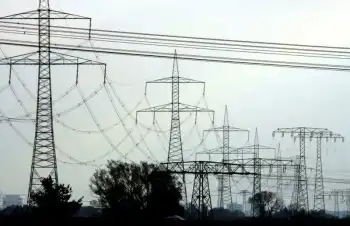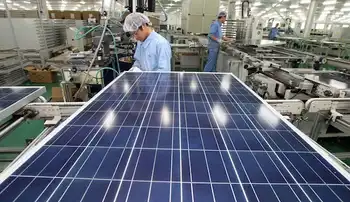Tariffs on Chinese Electric Vehicles

Protective Relay Training - Basic
Our customized live online or in‑person group training can be delivered to your staff at your location.

- Live Online
- 12 hours Instructor-led
- Group Training Available
Canada EV Tariffs weigh protectionism, import duties, and trade policy against affordable electric vehicles, climate goals, and consumer costs, balancing domestic manufacturing, critical minerals, battery supply chains, and China relations amid US-EU actions.
Key Points
Canada EV Tariffs are proposed duties on Chinese EV imports to protect jobs vs. prices, climate goals, and trade risks.
✅ Shield domestic automakers; counter subsidies
✅ Raise EV prices; slow adoption, climate targets
✅ Spark China retaliation; hit exports, supply chains
Canada, a rising star in critical EV battery minerals, finds itself at a crossroads. The question: should they follow the US and EU and impose tariffs on Chinese electric vehicles (EVs), after the U.S. 100% tariff on Chinese EVs set a precedent?
The Allure of Protectionism
Proponents see tariffs as a shield for Canada's auto industry, supported by recent EV assembly deals that put Canada in the race, a vital job creator. They argue that cheaper Chinese EVs, potentially boosted by government subsidies, threaten Canadian manufacturers. Tariffs, they believe, would level the playing field.
Consumer Concerns and Environmental Impact
Opponents fear tariffs will translate to higher prices, deterring Canadians from buying EVs, especially amid EV shortages and wait times already affecting the market. This could slow down Canada's transition to cleaner transportation, crucial for meeting climate goals. A slower EV adoption could also impact Canada's potential as an EV leader.
The Looming Trade War Shadow
Tariffs risk escalating tensions with China, Canada's second-largest trading partner. China might retaliate with tariffs on Canadian exports, jeopardizing sectors like oil and lumber. This could harm the Canadian economy and disrupt critical mineral and battery development, areas where Canada is strategically positioned, even as opportunities to capitalize on the U.S. EV pivot continue to emerge across North America.
Navigating a Charged Path
The Canadian government faces a complex decision. Protecting domestic jobs is important, but so is keeping EVs affordable for a greener future and advancing EV sales regulations that shape the market. Canada must carefully consider the potential benefits of tariffs against the risks of higher consumer costs and a potential trade war.
This path forward could involve exploring alternative solutions. Canada could invest in its domestic EV industry, providing incentives for both consumers and manufacturers. Additionally, collaborating with other countries, including Canada-U.S. collaboration as companies turn to EVs, to address China's alleged unfair trade practices might be a more strategic approach.
Canada's decision on EV tariffs will have far-reaching consequences. Striking a balance between protecting its domestic industry and fostering a robust, environmentally friendly transportation sector, and meeting ambitious EV goals set by policymakers, is crucial. Only time will tell which path Canada chooses, but the stakes are high, impacting not just jobs, but also the environment and Canada's position in the global EV race.











